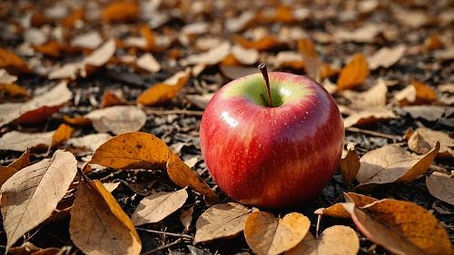top of page


Fruit Breakdown: Decomposition of an Apple
Apples ripen and fall to undergo earthly decomposition. Transformation from a crisp fruit to disappearance in the soil ecosystem is a...

Sylvia Rose
Feb 18, 20256 min read


Hormones in Microbes, Plants & Animals
Hormones, a term derived from the Greek word hormao meaning to excite or arouse, are signaling molecules sent by cells to influence...

Sylvia Rose
Feb 18, 20254 min read


Pheromones in Microbes, Plants & Animals
Pheromones are communication tools. Chemical substances released by an organism into the environment trigger responses to relay...

Sylvia Rose
Feb 18, 20254 min read


Cell Communication in Living Organisms
Cellular communication is a complex signaling system of living organisms from single-celled fungi to massive bodies. Cells use signals to...

Sylvia Rose
Feb 18, 20254 min read


Why Apples Turn Brown: Science & Nature
Apples turn brown when exposed to air. This phenomenon is enzymatic browning, a chemical reaction not limited to apples, but prevalent in...

Sylvia Rose
Feb 17, 20254 min read


Difference Between Oxidation & Fermentation
Oxidation and fermentation both are used by organisms to extract energy from molecules. These operate in distinct ways and under...

Sylvia Rose
Feb 17, 20254 min read


Black Tea (Camellia sinensis): Harvest to Cup
Black tea is made from the leaves of the Camellia sinensis plant. As it undergoes full oxidation, it takes on a dark hue and a strong...

Sylvia Rose
Feb 17, 20254 min read


Polyphenols: Plants & the Environment
Polyphenols in plants are protectors, beautifiers and communicators. With diverse structures and functions these phytochemical compounds...

Sylvia Rose
Feb 17, 20254 min read


Phytochemicals: Natural Chemicals of Plants
Phytochemicals are chemical compounds created by plants. They can enhance a plant's color, flavor, and aroma and provide defense systems...

Sylvia Rose
Feb 17, 20255 min read


Wine Making Process: Grape to Glass
Wine making starts with selecting the ripest grapes and follows through various stages of fermentation, aging and bottling. Here's an...

Sylvia Rose
Feb 16, 20255 min read


Fructose (Fruit Sugar): Sweetest Saccharide
Fructose is a simple sugar, a member of the carbohydrate family. It's found especially in fruits and honey. Fructose is known for...

Sylvia Rose
Feb 16, 20254 min read


Yeast & Fermentation: the Crabtree Effect
The Crabtree effect causes yeasts like Saccharomyces cerevisiae to produce alcohol in an oxygenated habitat under osmotic pressures from...

Sylvia Rose
Feb 16, 20253 min read


Microbe Glue (EPS) in Biofilm Formation
Biofilms are prosperous microbial communities, complex networks of microorganisms including bacteria, fungi and algae. Their secretions,...

Sylvia Rose
Feb 16, 20255 min read


Sucrose: Double Sugar of Science & Cuisine
Sucrose, commonly known as table sugar, is a disaccharide or double sugar of glucose and fructose. Most sucrose eaten by humans comes...

Sylvia Rose
Feb 16, 20255 min read


Algae: Evolution, Science & Environment
Algae are a diverse range of species, from microscopic phytoplankton to massive kelp forests. Their variety comes from lack of a common...

Sylvia Rose
Feb 16, 20254 min read


Yeast, Humans & Aerobic Respiration of Cells
Yeast is a single-celled organism, multiplying rapidly in the presence of sugar. Its products differ in aerobic and anaerobic conditions....

Sylvia Rose
Feb 15, 20254 min read


Yeast Fermentation: Beer Brewing Process
Fermentation is a vital step in brewing, transforming sweet wort into beer. While the initial stages of malting, mashing and making the...

Sylvia Rose
Feb 15, 20255 min read


Fermentation Energy: Yeast & Lactic Acid Bacteria
Fermentation is a natural process for generating energy in anaerobic environments. Microorganisms like yeast and lactic acid bacteria...

Sylvia Rose
Feb 14, 20252 min read


Cyanobacteria: Nutrients & Bacterial Blooms
Cyanobacteria, also called blue-green algae, are historically entwined with the evolution of Earth. They convert sunlight, water, and...

Sylvia Rose
Feb 14, 20253 min read


Phytoplankton: Environment & Human Health
Phytoplankton are microscopic plants of the waters. Phytoplankton support marine life, influence climate and health. A diverse group of...

Sylvia Rose
Feb 14, 20253 min read
bottom of page